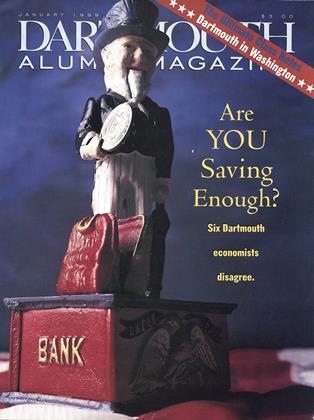How much are California and New Mexico worth to the United States? If you had asked Daniel Webster in 1848, he would have thundered, "I hold they are not worth a dollar; and we pay for them huge sums of money!" Webster, at the time, was a U.S. senator from Massachusetts. The United States had acquired New Mexico and California in a costly war with Mexico. In a Senate speech Webster called New Mexico a "barren waste, a desert plain of mountain, with no wood, no timber.... There is not the least thing in it to invite settlement from the fertile valley of the Mississippi." But it wasn't just the land that he found objectionable. He didn't like the people, either.
Ken Shewmaker, a Dartmouth history professor and Webster scholar, puts Webster's remarks in perspective, saying the godlike one was concerned that acquiring new territory would set off a debate about expanding slavery that would tear the nation apart. (Webster was right about that.) Webster was against slavery, Shewmaker said, but he was not an abolitionist; rather, Webster objected to the expansion of slavery into new territories.
Webster believed the future of America was in trade. For that reason Webster saw value in acquiring the San Francisco harbor, and in fact, as secretary of state in 1842, advocated purchasing the city from Mexico. Once the United States acquired all of the Mexican territories, he became very enthusiastic about California and the potential for trade with the East, Shewmaker says. Ironically, even as Webster denounced (most of) California, events were proving him wrong. Gold had already been discovered on the West Coast— but the word had not yet reached the East.
Webster wanted nothing to do with California dreaming.
 View Full Issue
View Full Issue
More From This Issue
-
 Feature
FeatureThe Book That Was Banned in Hanover
January 1999 By Robert H. Nutt '49 -
 Cover Story
Cover StoryAre Americans Saving Enough?
January 1999 By Charles Wheelan ’88 -
 Feature
FeaturePuppets in the Ivy League
January 1999 By Rich Barlow '81 -
 Feature
FeatureA Few Runs at the Skiway
January 1999 By Mark Schiffman '90 -
 Feature
FeatureThe Smart Classroom
January 1999 By Michelle Gregg '99 -
 Article
ArticleThe College On (Capitol) Hill
January 1999 By Jake Tapper ’91







